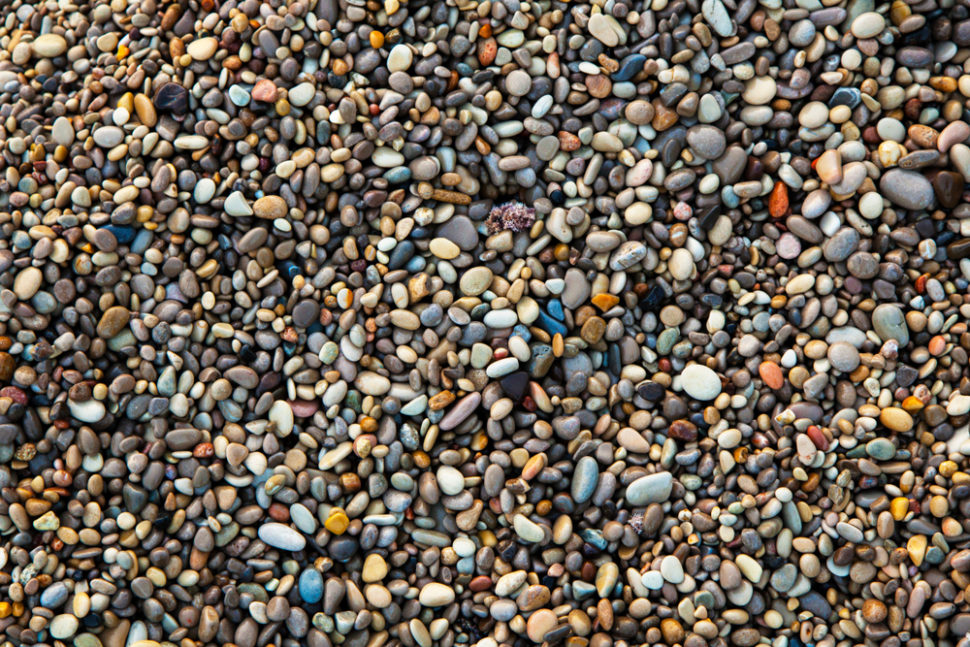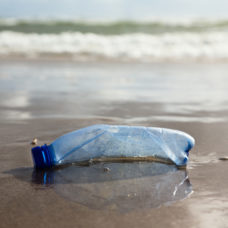Rocks are a natural product of the planet’s matter-recycling processes like volcanic eruptions. After escaping the infernal depths of Earth as a viscous magma, the molten rocks solidify and take different shapes and sizes due to the action of the elements.
Plastic, on the other hand, is a human-made product that’s gone through excessive processing. It’s a polluting, non-renewable, nature-derived resource. And neither Earth’s natural systems nor our artificial ways can efficiently recycle plastic’s harm away.
Now we have to make room for plastic rocks, or plastic that looks almost exactly like rocks. This is a new form of plastic pollution that doesn’t get much attention.
Plastic Rocks: Alarming Discovery Suggests Global Phenomenon
Plastic is in everywhere you look. From the highest mountains to the deepest trenches. It is in the air, in the water, in our lungs, and digestive system.
Next time you walk on the beach, know that the rocks and pebbles you see on the sand are not all-natural. Some could be plastic pieces hiding in plain sight, passing themselves off as rocks.
In a new study, researchers from the University of Plymouth have found plastic rocks, known as pyroplastics, on Britain’s coastline.
Pyroplastics are plastic chunks of varying sizes resembling pebbles that form when plastic is heated until it burns or melts. When they reach coastal areas, the water and rough sand get them smoothed out and rounded.
On beaches, these plastic materials go unnoticed, camouflaged as ordinary rocks and pebbles.
Cornwall native Rob Arnold, an environmental artist, dared visiting a display in a local museum to spot the real rocks from the fakes, or the plastic ones.
“Pyroplastics are evidently formed from melting or burning of plastic and are distinctly different from manufactured (primary and secondary) marine plastics in terms of origin, appearance and thickness,” write the researchers in their paper, published in Science Direct.
The research team analyzed 165 of these plastic rocks collected from Whitsand Bay in Cornwall. In addition to a further 30 pyroplastics from Scotland, Ireland, and Spain that were collected by other members of the team.
The samples suggest that the issue is far from being a local plastic pollution problem exclusive to the UK’s shoreline. The phenomenon of plastic rocks could be of global proportions.
“Since pyroplastics have been retrieved by colleagues from Atlantic beaches in Spain and Pacific beaches of Vancouver, they are not a regional phenomenon, and it is suspected that their distribution may be widespread, but that documentation is lacking because of a distinctly geogenic appearance.”
The team used several techniques to examine the chemical makeup of these plastic rocks. These include Attenuated Total Reflection, X-ray fluorescence, and infrared spectroscopy.
Further analysis of these pyroplastics revealed that they are made mostly of polyethylene, polypropylene, or a combination of the two.
But what’s more concerning is that the samples contained lead, often alongside chromium, that leaks into the ocean.
And we’re not even done yet with the potential environmental threat of this form of plastic junk!
Exposed to the atmosphere, synthetic rocks weather away, shedding chemical particulate matter that can be ingested by living organisms, like humans. The researchers added:
“Pyroplastics require their own classification within the umbrella of marine litter, and are a source of finer plastic particulates through mechanical breakdown and a potential source of contaminants for organisms that inhabit or ingest them.”



















I was constantly tired and short of breath due to my Emphysema, I was introduced to VineHealth Center and their COPD Herbal Protocol. I started on the COPD Treatment last year, my symptoms gradually diminished. Reach the m at vinehealthcenter. c om. I am Emphysema free!